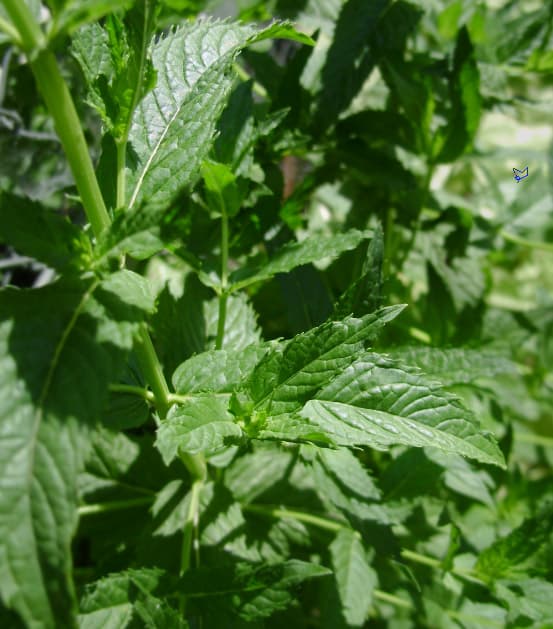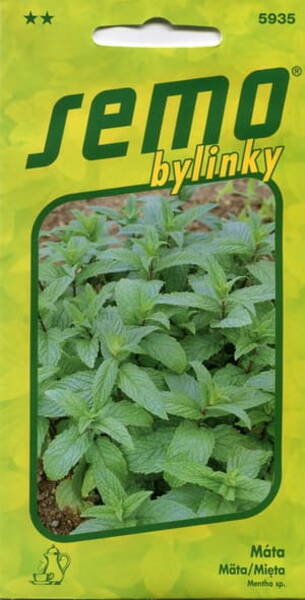Perennial herbaceous plant 50 - 70 cm high. Stem is annual, branched, densely leafy. Leaves petiolate, oblong-ovate. The flowers are small, corolla lilac-pink or red-violet. Mint is an excellent honey plant.

Agricultural technology.
Sowing dates and scheme: propagated mainly vegetatively - by dividing rhizomes, cuttings and layering (creeping ground shoots), which ensures the evenness of plants and preserves their varietal qualities. Rhizomes are planted in furrows with a row spacing of 60-70 cm and covered with earth.
When grown by seedlings, seedlings (cuttings, layering, rhizomes) dive into greenhouses or on ridges 1 m wide in 3 rows (the distance between rows is 30, and the interval between plants in a row is 20-30 cm). Planting depth: 6-8 cm.
When grown by seedlings, seeds are sown in March, without covering with earth, in boxes that are placed in greenhouses or a greenhouse.
When grown from seedlings, seedlings are planted in the ground in spring or late summer (August). During vegetative propagation, cuttings are rooted in the sand in summer, and by autumn they receive good planting material.
Mint is photophilous and loves moist and fertile soils.
Vegetation period: 70-80 days. Can be grown indoors.
Sowing: in early spring in open ground to a depth of 1-1.5 cm. Germination at a temperature of +10 +12 °C, the optimum temperature for seed germination is 20-25%. Seedlings are sown in a greenhouse. The seedlings that have appeared are thinned out according to the 5x5 cm scheme. At the age of 30-40 days, the seedlings are planted in the ground at 70x30 cm.
Care: consists of weeding, loosening, watering and top dressing (especially after picking and before flowering). For the winter, the rhizome is covered with an additional layer of soil and straw 10-20 cm thick.
Watering: after planting, for quick germination and engraftment, the mint is watered 2-3 times a week. Watering is especially necessary during the dry growing season.
Top dressing: during the period of bud formation, they are fed with manure (1:10), and the solution consumption is 0.5 l per 1 m2.
During active growth, plants can be fed with mineral fertilizers (in g / m2): ammonium nitrate - 5, superphosphate - 10-15, and potassium chloride - 4.
Harvesting: harvesting for future use is started the next year after planting. Cut the mint at the beginning of flowering, when it contains the largest amount of essential oil. Usually, 2 cuts are carried out per season, with good regrowth - 3.
Plants cut near the ground are dried on the site, dried under a canopy and stored in paper bags at a temperature of +10 +15 °С. The yield of dry mass is 200 g per 1 m2. The yield of green mass is 1.5-2 kg/sq.m. The leaves are separated from the stems and stored in a dry place.
Possible failures: when growing mint, they are extremely rare - mainly due to non-compliance with agricultural technology. However, keep in mind that mint spreads quickly throughout the site and can drown out other crops.












